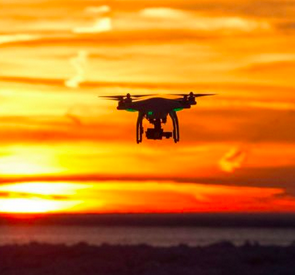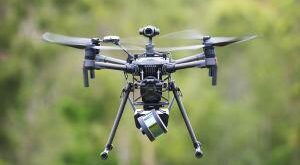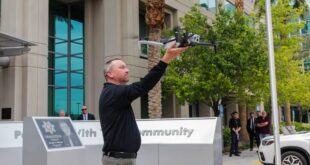A legal battle in Washington State may define the state’s future approach to aerial rights and drone law.
Fort Discovery Inc., developer of a civilian gun range/military and law enforcement training facility in Port Townsend, Wash., has filed multiple lawsuits against Tarboo Ridge Coalition, a group opposing the construction.
According to the Peninsula Daily News, Fort Discovery attorney Greg Overstreet told the Jefferson County Commission that TRC members were violating the company’s aerial rights by flying drones over the proposed construction site.
Coalition president Peter Newland told commissioners that “a drone flying at 350 feet had captured photos of D’Amico’s property at Tarboo Lake.”
Newland claims drone photos showed construction at the site despite an apparent moratorium pending complaints filed with local and state agencies.
“Fort Discovery committed no such violations,” alleges the company’s lawsuit, adding that they must now “spend time and money to rebut TRC’s false claims – claims that flow directly from TRC’s admitted unauthorized drone flights over Fort Discovery’s property.”
On its website, TRC says construction of the 40-acre gun range/training center would be “both disruptive and dangerous, and that siting any shooting facilities on the shores of Tarboo Lake is not in the best interests of the citizens of Jefferson County.”
Fort Discovery owner Joe D’Amico counters in his legal complaint that “flying drones over my property and spying on me has caused me to feel that my privacy has been violated, seriously alarmed and annoyed me, and has caused me substantial emotional distress. It has also disrupted my business operations.”
The lawsuit also raises issues of security:
“The military and law enforcement training at Cedar Hills will be sensitive. Observation from above the facility will show training and tactics that could compromise the military and law enforcement units’ safety.”
Attorney Overstreet told DroneLife the case is unique in that there exists no case law on the books in Washington that deals with aerial trespass.
The lawsuit adds that, since the company plans to add communication towers, windmills and other tall structure, that flying drones over the property would create unsafe conditions and interfere with reasonable use of their property, especially once the center begins helicopter flights.
“Drone flights over the Cedar Hills facility that Fort Discovery did not know about, such as TRC’s drone flights on the property, whether at tree-top altitude or higher, hinders Fort Discovery’s helicopter operations. Such interference prevents Fort Discovery from fulling using the land for its enjoyment … TRC invaded Fort Discovery’s interest in exclusive possession of its property. The TRC drone flights were an intrusion onto Fort Discovery’s property that substantially interfered with, and continue to interfere with, Fort Discovery’s exclusive use and possession of its property.”
Jason is a longstanding contributor to DroneLife with an avid interest in all things tech. He focuses on anti-drone technologies and the public safety sector; police, fire, and search and rescue.
Beginning his career as a journalist in 1996, Jason has since written and edited thousands of engaging news articles, blog posts, press releases and online content.
Email Jason
TWITTER:@JasonPReagan
Subscribe to DroneLife here.
https://dronelife.com/2019/01/05/washington-state-lawsuit-blends-drone-law-and-privacy-concerns/
 Unmanned Aerial Vehicle The latest drone news
Unmanned Aerial Vehicle The latest drone news



